By Emily Hamilton ’19, Holland-Hope Sustainability Institute Intern
Memorial Day is here, and I don’t know about you, but my family always has a huge picnic to celebrate the kickoff to summer!
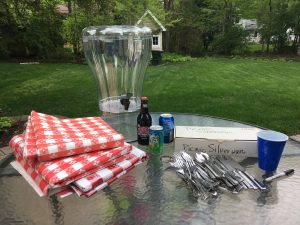
This is a time when many of us are grilling out, hosting parties, and enjoying the outdoors with our families. As you plan your Memorial Day picnic or other get-togethers, keep in mind ways that you can make your event more sustainable.
Over the years, my family has done many things to lessen our picnic’s impact on the environment.
One of the ways that we do this is to avoid using single-use items. For instance, we use the same oil-cloth table clothes every year, instead of plastic ones. We have designated “picnic silverware” that is an assortment of mismatched, second-hand metal utensils we specifically use for these events. If a fork gets
lost, it isn’t a big deal, and this reduces the amount of plastic used.
Additionally, we encourage people to bring their own water bottles, and we provide a water dispenser as opposed to offering plastic water bottles.
Of course, it is difficult to completely avoid single-use items. However, you can easily cut down on plastic by purchasing aluminum cans and glass bottles. Cans and bottles are easily recycled, but make sure your guests know where they can recycle during the event. My family provides separate bins for recycling that are clearly labeled. We write a sign that designates the receptacles for cans and bottles.
 We also might use disposable plates, but we make sure they are paper plates or ones that are compostable. You can purchase sugar-cane plates online that are entirely biodegradable.
We also might use disposable plates, but we make sure they are paper plates or ones that are compostable. You can purchase sugar-cane plates online that are entirely biodegradable.
Stay away from Styrofoam and plastic whenever you can. If you do use single-use plastic cups, provide a marker so that guests can keep track of their cup and beverage. This will cut down on the number of cups used by each person.
The menu is also important to consider when planning a sustainable summer barbeque.
Burgers and brats are almost synonymous with grilling out, but beef is not the best for the environment. Large amounts of resources, such as water, go into producing beef. Cutting back on your consumption of beef products is an easy way to lessen your environmental footprint. Consider serving grilled chicken and vegetables.
If you do choose to serve meat, “shop local” from a local butcher shop.
No matter what you are serving, consider buying it from your local farmer’s market. Having farm fresh fruit and vegetables is not only tasty, the waste is compostable too.
And when cooking the food, it is best to use a propane gas grill with a cover on it, since charcoal grills emit much more carbon dioxide.
With these tips, I hope you can plan and enjoy your sustainable summer party!
Emily Hamilton is a recent Hope College graduate who received her degree in environmental management. She has worked with the campus Green Team and the Holland-Hope Sustainability Institute. She hopes to continue advocating for the environment and sustainable choices in a future career.
![]() This Week’s Sustainability Framework Theme
This Week’s Sustainability Framework Theme
Environmental Awareness/Action: Environmental education and integrating environmental practices into our planning will change negative outcomes of the past and improve our future.
![]() ABOUT THIS SERIES
ABOUT THIS SERIES
Living Sustainably is a collection of community voices sharing updates about local sustainability initiatives. It is presented by the Holland-Hope College Sustainability Institute, a joint project of Hope College, the City of Holland and Holland Board of Public Works. Go to www.hope.edu/sustainability-institute for more information.


 Do you really dig the tulips? Well, here’s the chance – to dig ‘em up, that is.
Do you really dig the tulips? Well, here’s the chance – to dig ‘em up, that is.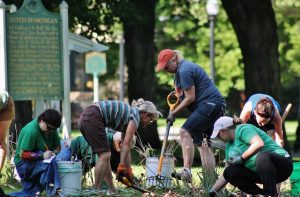
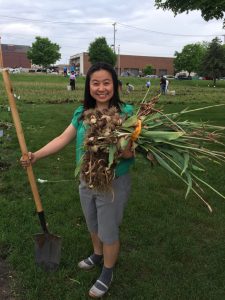

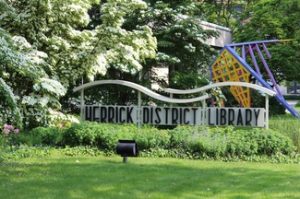
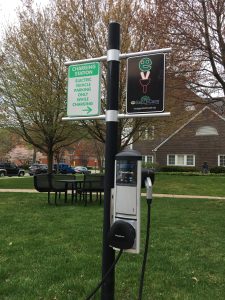
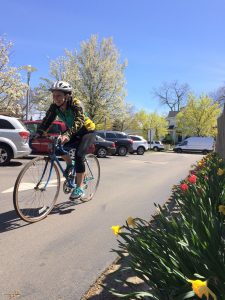


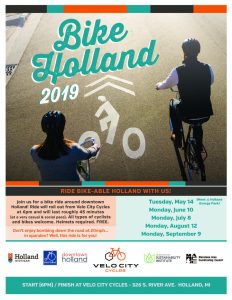
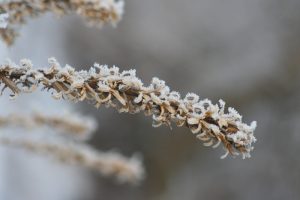
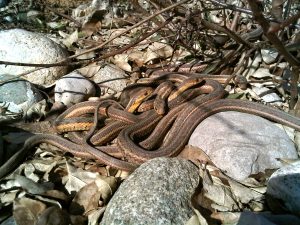
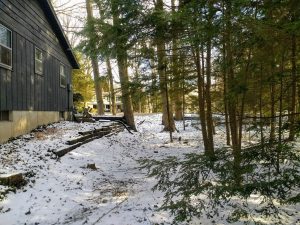
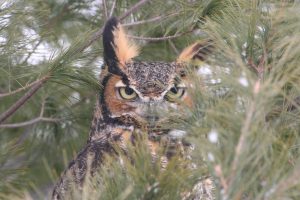
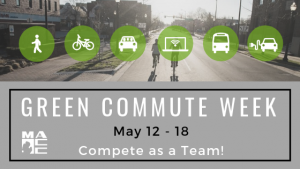
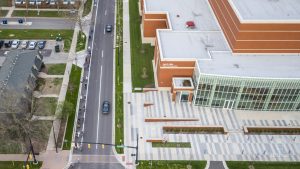 Here’s how it works: During the week, individuals and teams in the Holland/Zeeland area compete by choosing “green” transportation options when commuting to work, school, running errands, and so on.
Here’s how it works: During the week, individuals and teams in the Holland/Zeeland area compete by choosing “green” transportation options when commuting to work, school, running errands, and so on.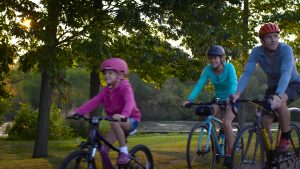 This event is for everyone, whether you’re a year-round green commuter or first-timer interested in trying something new.
This event is for everyone, whether you’re a year-round green commuter or first-timer interested in trying something new.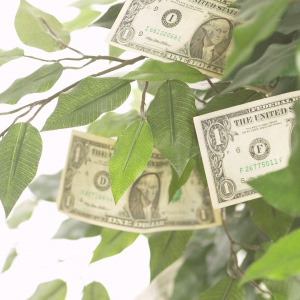 Businesses are emerging as significant players in the environmental/social movement because of their opportunities to implement solutions while still following principled business methods.
Businesses are emerging as significant players in the environmental/social movement because of their opportunities to implement solutions while still following principled business methods.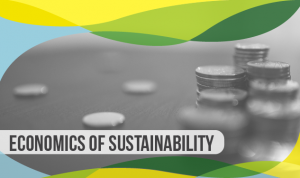
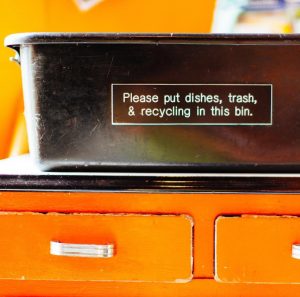 We will hear from representatives of: Local First West Michigan/Good for Michigan; the chair of the new Chamber Sustainability Affinity Group; Lakeshore Advantage; and local businesses like EcoBuns Baby + Co., Lemonjellos Coffee, and Goodwill Industries of West Michigan.
We will hear from representatives of: Local First West Michigan/Good for Michigan; the chair of the new Chamber Sustainability Affinity Group; Lakeshore Advantage; and local businesses like EcoBuns Baby + Co., Lemonjellos Coffee, and Goodwill Industries of West Michigan.